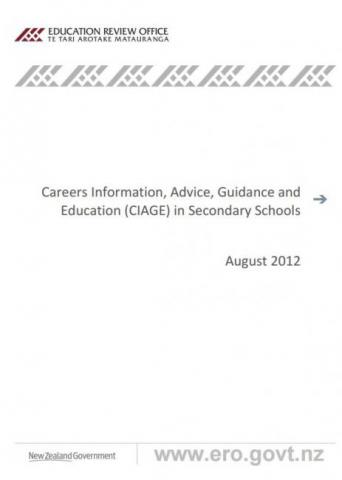Boys' Education: Good Practice in Secondary Schools
Published: 01 Jul 2008
This Education Review Office report provides schools and policy makers with examples of how 10 New Zealand secondary schools successfuly support boys' education. The schools in this study were selected on the basis of their good overall levels of student achievement, previous positive ERO reports and their well-developed pastoral care and support strategies. Five boys' schools and five coeducational schools are used as case studies
- Audience:
- Schools
- Content type:
- Research
- Topics:
- Boys' education
- Pastoral care


















